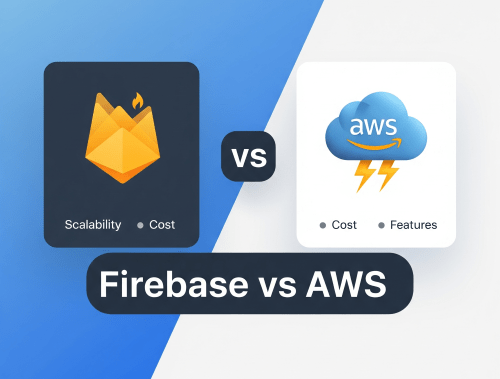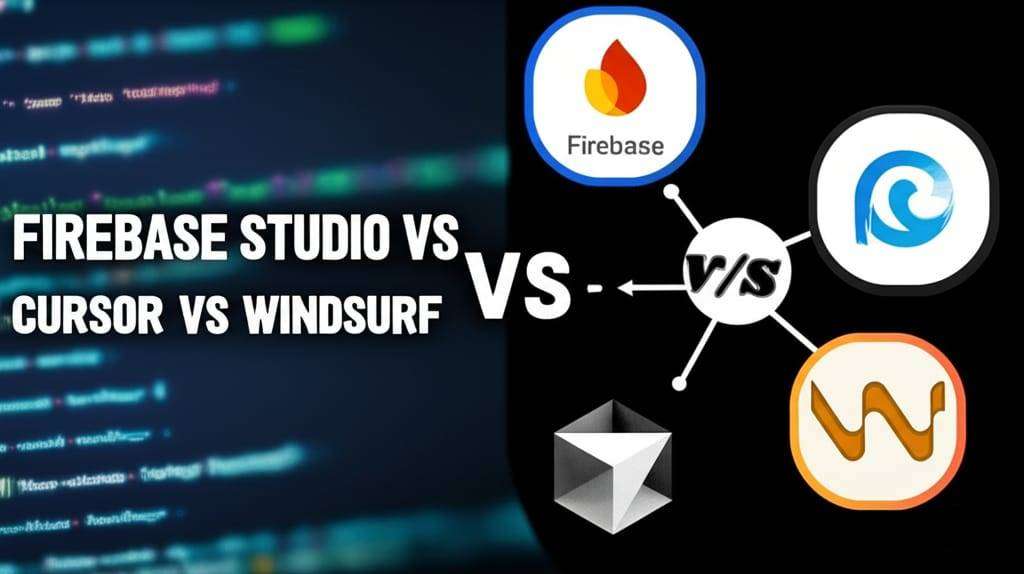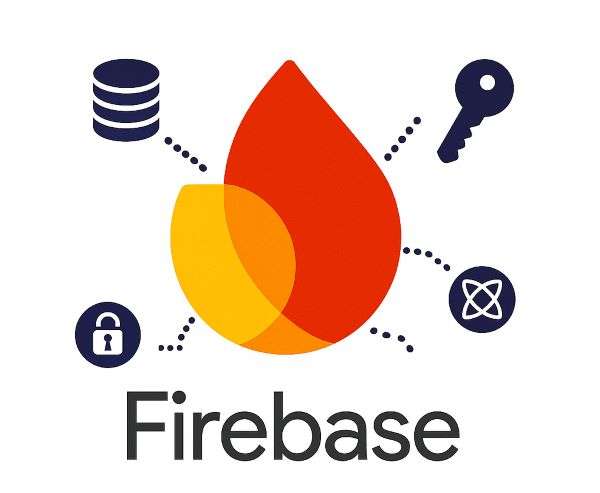If you plan to create an app or website, you will come across Firebase as well as Amazon Web Services (AWS). Firebase vs AWS Which one is best for your project and why? In this blog, we’ll compare both in easy-to-understand language, explore services they offer, and also briefly touch on trends like the “Firebase vs Cursor vs Windsurf” comparisons that are gaining attention in developer communities.
Table of Contents
What is Firebase?
Firebase vs AWS comparison. Is really very important for hosting pricing and in other aspects as well. But first we have understood what these terms are. if you want to know best way what firebase or firebase studio is check this URL link 👉 firebase studio by themetamyths
Google has developed a cloud-based platform called Firebase. It allows developers to build apps faster with ready-made tools such as Real-time databases.
Firebase’s environment is a developer-friendly one. Developers can manage the backend of their apps with tools such as Firebase Studios, Firebase console and Console Firebase.
What is AWS (Amazon Web Service)?
AWS (Amazon Web Services) is a cloud computing platform by Amazon. It offers over 200 services including:
- Hosting
- Storage
- Databases
- Serverless computing
- Machine learning
AWS is best known for its power and flexibility, but it can be complex for beginners. It’s used by large companies like Netflix, Airbnb, and Reddit.
What’s AWS Amplify
AWS Amplify is a set of tools and services from Amazon Web Services that helps developers build full-stack web and mobile applications quickly and easily. It supports front-end frameworks like React, Angular, and Vue, and connects seamlessly with back-end services like authentication, APIs, and databases. With Amplify, you can deploy apps with a few clicks, add real-time data, and scale automatically—all without managing servers. It’s a great choice for developers looking to build modern, cloud-powered apps fast.

Service-by-Service Comparison
Let’s compare Firebase vs AWS based on key development features:
| Feature/Service | Firebase | AWS (Amazon Web Services) |
| Authentication | Yes (easy to set up using Google, Facebook, etc.) | Yes (AWS Cognito – powerful, more complex) |
| Real-time Database | Yes (Firestore & Realtime DB for live updates) | Not built-in; use tools like DynamoDB or AppSync |
| Hosting | Simple hosting for static sites | Scalable options like EC2, S3, and CloudFront |
| Serverless Functions | Cloud Functions (basic tasks) | AWS Lambda (advanced, powerful) |
| Machine Learning | ML Kit (limited, mobile-focused) | AWS SageMaker (advanced model training & deployment) |
| Storage | Firebase Storage for files | Amazon S3 (reliable, flexible, secure) |
| Analytics | Google Analytics for Firebase | AWS Pinpoint or integrations like GA4 |
| Database | Firestore / Realtime Database (NoSQL) | DynamoDB (NoSQL), RDS (SQL support) |
Pricing: Firebase vs AWS
Firebase
- Free Spark plan for small projects
- Blaze plan is pay-as-you-go and affordable
- Easy to estimate and control costs
AWS
- Free Tier for 12 months (limited usage)
- Pay-as-you-go with complex pricing structure
- Can become expensive as traffic grows
Overview: Firebase is cheaper for beginners and small teams. AWS is cost-effective at scale with proper optimization.
Ease of Use
Firebase
- Extremely beginner-friendly.
- Tools like Firebase Console help you manage your app visually.
- Firebase Studio (beta and tool-based integrations) make testing easy.
- No server management needed.
AWS
- Powerful, but has a steep learning curve.
- Requires more setup and technical knowledge.
- Best for professional developers or large teams.
Overview: Firebase is easier to start with. AWS is more customizable but harder to learn.
Scalability
Both platforms are scalable, but in different ways
- Firebase is great for prototypes, MVPs, and real-time apps (like chat applications).
- AWS‘s global infrastructure and flexibility makes it ideal for enterprise apps or apps with millions of users.
Security
- Firebase uses Google-level infrastructure with security rules for data access. Easy to manage through Console Firebase.
- AWS provides enterprise-level security including Identity & Access Management (IAM), encryption, and compliance tools.
Firebase vs Cursor vs Windsurf?
You might’ve heard people comparing “Firebase vs Cursor vs Windsurf.” While Cursor and Windsurf refer to modern AI coding tools, Firebase is still the go-to for actual app backend development.
So, if you’re trying to build and host an app, Firebase (or AWS) remains your primary choice.

Who Should Use Firebase?
Use Firebase if you:
- Are a beginner or student
- Want to build an app quickly
- Don’t want to manage servers
- Need tools like real-time databases, hosting, and auth in one place
Who Should Use AWS?
Use AWS if you:
- Have a growing or enterprise-level app
- Need advanced services like machine learning or SQL databases
- Want full control over the infrastructure
- Have a technical team or DevOps support
Use Case Summary Table
| Use Case | Best Platform |
| Student or hobby project | Firebase |
| Chat, notes, or real-time apps | Firebase |
| SaaS product or large-scale app | AWS |
| App with complex database needs | AWS |
| Team with limited cloud experience | Firebase |
| Enterprise needing compliance/security | AWS |
Final Conclusion
Choosing between Firebase and AWS depends on:
- Your project size
- Your team’s experience
- Your app’s complexity
- Your budget
Use Firebase for speed and simplicity and AWS for power and control


